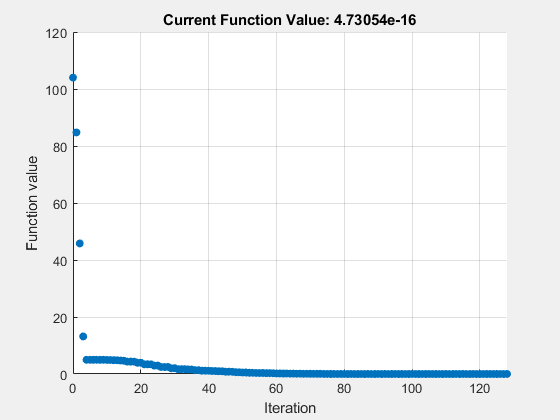optimset
创建或修改优化 options 结构体
语法
说明
options = optimset(Name,Value)options,其中包含使用一个或多个名称-值对组参量设置的指定参数。
optimset(不带输入或输出参量)显示完整的参数列表及其有效值。
options = optimsetoptions,其中所有参数都设置为 []。
options = optimset(oldopts,Name,Value)oldopts 的副本,并使用一个或多个名称-值对组参量修改指定参数。
示例
输入参数
名称-值参数
输出参量
限制
optimset为四个 MATLAB® 优化求解器设置选项:fminbnd、fminsearch、fzero和lsqnonneg。要为 Optimization Toolbox™ 或 Global Optimization Toolbox 求解器设置选项,推荐使用optimoptions(Optimization Toolbox) 函数。optimset不能为某些 Optimization Toolbox 求解器设置选项,如intlinprog。请改用optimoptions(Optimization Toolbox)。optimset不能设置 Global Optimization Toolbox 求解器的大多数选项。请改用optimoptions(Optimization Toolbox)。
扩展功能
版本历史记录
在 R2006a 之前推出
另请参阅
optimget | fminbnd | fminsearch | fzero | lsqnonneg | optimoptions (Optimization Toolbox)
